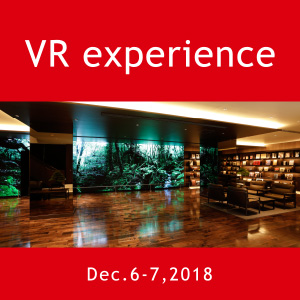-
 Full Conference Pass (FC)
Full Conference Pass (FC)
-
 Full Conference One-Day Pass (1D)
Full Conference One-Day Pass (1D)
Date: Wednesday, December 5th
Time: 2:15pm - 6:00pm
Venue: Hall D1 (1F, D Block)
Summary: Near-eye (VR/AR) displays suffer from technical, interaction as well as visual quality issues which hinder their commercial potential. This tutorial will deliver an overview of cutting-edge VR/AR display technologies, focusing on technical, interaction and perceptual issues which, if solved, will drive the next generation of display technologies. The most recent advancements in near-eye displays will be presented providing (i) correct accommodation cues, (ii) near-eye varifocal AR, (iii) high dynamic range rendition, (iv) gaze-aware capabilities, either predictive or based on eye-tracking as well as (v) motion-awareness. Future avenues for academic and industrial research related to the next generation of AR/VR display technologies will be analyzed.
Author(s)/Speaker(s):
Moderator: George Alex Koulieris, Durham University, United Kingdom
Lecturer(s): George Alex Koulieris, Durham University, United Kingdom
Kaan Aksit, NVIDIA, United States of America
Christian Richardt, University of Bath, United Kingdom
Rafal Mantiuk, University of Cambridge, United Kingdom
Author(s)/Speaker(s) Bio:
George Alex Koulieris is an Assistant Professor in the Innovative Computing Group at the Department of Computer Science, Durham University. His primary research interests lie in the field of computer graphics, applied visual perception and display hardware, with a strong focus on near-eye displays and virtual reality. Before joining Durham in 2018, he was a post-doctoral researcher at Inria, France, team GraphDeco, and visiting scholar at UC Berkeley Vision Science, USA, working on near-eye, stereo displays. George obtained his PhD in Electronic & Computer Engineering from TUC, Greece, working on gaze prediction for game balancing, level-of-detail rendering and stereo grading.
George Alex Koulieris is an Assistant Professor in the Innovative Computing Group at the Department of Computer Science, Durham University. His primary research interests lie in the field of computer graphics, applied visual perception and display hardware, with a strong focus on near-eye displays and virtual reality. Before joining Durham in 2018, he was a post-doctoral researcher at Inria, France, team GraphDeco, and visiting scholar at UC Berkeley Vision Science, USA, working on near-eye, stereo displays. George obtained his PhD in Electronic & Computer Engineering from TUC, Greece, working on gaze prediction for game balancing, level-of-detail rendering and stereo grading.
Kaan Aks ̧it has a B.S. in Electrical Engineering, Istanbul Technical University, a M.Sc. in Electrical Power Engineering, RWTH Aachen University, Germany, and a Ph.D. in Electrical Engineering, Koc ̧University,Turkey).In 2009, he joined Philips Research at Eindhoven, the Netherlands as an intern. In 2013, he joined Disney Research, Zurich, Switzerland as an intern.His past research includes topics such as visible light communications, optical medical sensing, solar cars, and auto-stereoscopic displays. Since July 2014, he is working as a research scientist at Nvidia Corporation located at Santa Clara, USA, tackling the problems related to computational displays for virtual and augmented reality.
Christian Richardt is a Lecturer and EPSRC-UKRI Innovation Fellow at the University of Bath. He graduated with a PhD from the University of Cambridge in 2012 and was previously a postdoc at Inria Sophia-Antipolis, MPI Informatics, and the Intel Visual Computing Institute. His research combines insights from vision, graphics and perception to reconstruct visual information from images and videos, to create high-quality visual experiences with a focus on 6-degree-of-freedom VR video. He previously organised two SIGGRAPH courses (User-Centric Videography in 2015, Video for Virtual Reality in 2017), and co-presented a full-day tutorial on VR/AR Display Technologies at IEEE VR 2018.
Rafał K. Mantiuk is a Reader (Associate Professor) at the Department
of Computer Science and Technology, University of Cambridge (UK). He
received his PhD from the Max-Planck-Institute for Computer Science
(Germany). His recent interests focus on computational displays, novel
display technologies, rendering and imaging algorithms that adapt to
human visual performance and viewing conditions in order to deliver
the best images given limited resources, such as computation time,
bandwidth or dynamic range. He contributed to early work on high
dynamic range imaging, including quality metrics (HDR-VDP), video
compression and tone-mapping. Further details: http://www.cl.cam.ac.uk/~rkm38/.




